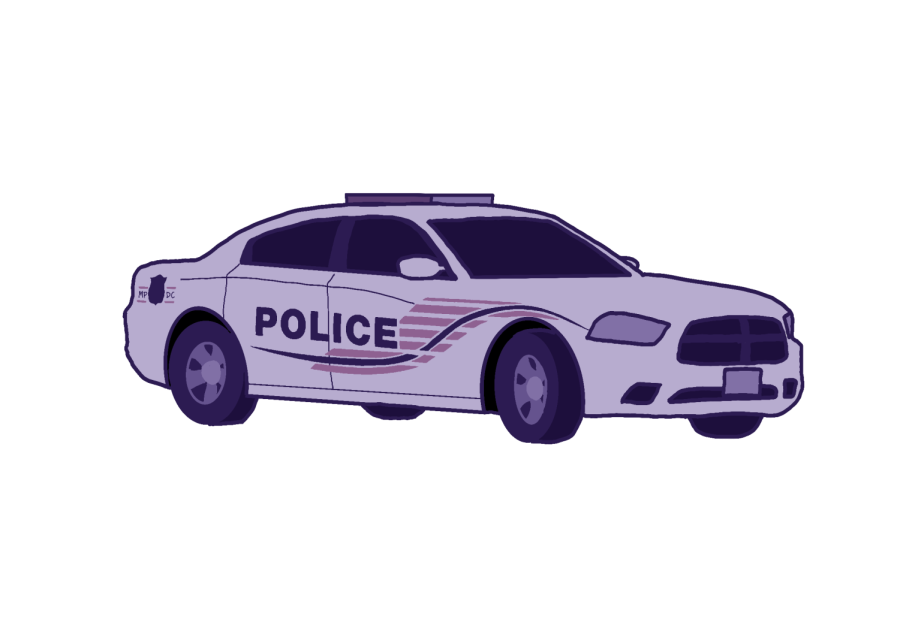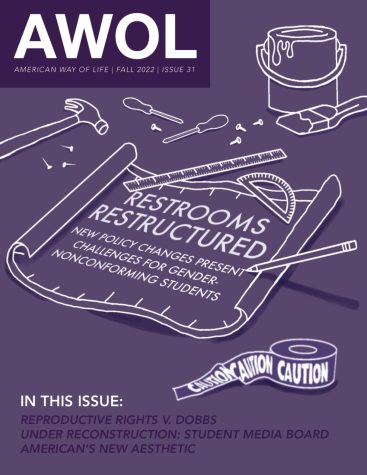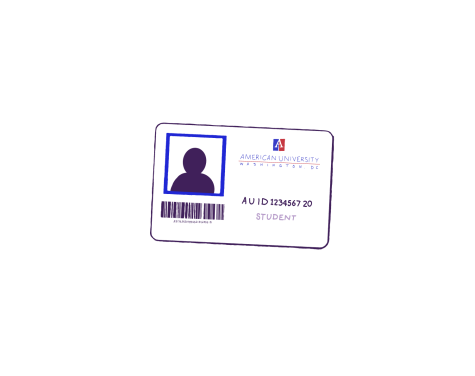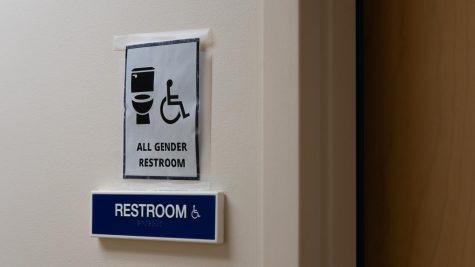Policy doesn’t equal policing in drug arrests
Washington, D.C., decriminalized drug paraphernalia in 2020. Metropolitan police continue to arrest people for the offense.
Although the DC Council unanimously voted to decriminalize all drug paraphernalia in 2020, data from the Metropolitan Police Department (MPD) shows that officers continued to arrest people for the offense into the following year, highlighting what some experts see as a gap between the district’s increasingly progressive drug laws and their enforcement.
Many parts of the country, the district in particular, have begun to shift toward a less punitive approach to addressing the opioid epidemic. The district decriminalized marijuana in 2014, introduced a needle exchange program and made the opioid reversal drug, naloxone, widely available. However, advocates said there is still more to do, as most drugs remain illegal and police officers have continued to arrest people for decriminalized offenses.
“When looking at opioid policy, in general, I think we’ve gotten to a more sympathetic view,” said Madison Fields, a legal fellow at Georgetown University’s O’Neill Institute for National and Global Health Law. “But I would say that law enforcement has not caught up to that, in particular.”
In 2021, police arrested eight people for possession of drug paraphernalia, and 42 people were involved in paraphernalia-related stops, searches and seizures. Three of the arrests and half of the stops, searches and seizures occurred after the decriminalization law was officially enacted in March of that year, which experts said likely means the police acted illegally in at least some of those cases.
While arresting someone solely for possession of drug paraphernalia after the law’s enactment would have been illegal, Nabeel Kibria, a drug lawyer based in the district, said such behavior wouldn’t surprise him.
“Are they allowed to arrest you for a crime that’s not even a crime? No,” Kibria said. “But do police arrest people all the time for all kinds of stuff, even if what they initially [charged them with] was not an arrestable offense? Sure, I see it all the time.”
Richard Bennett, a policing expert and professor of justice, law and criminology at American University, agreed such arrests were likely illegal, but said it was unlikely police would face repercussions because the victims of the arrests themselves would have to hold them accountable.
“Police cannot illegally detain you without consequence,” Bennett said, but “the injured party has to complain.”
However, both Bennett and Fields said those who were arrested were likely not in a position to complain.
“Going up against law enforcement can be scary, and there are lots of reasons why people don’t fight it,” Fields said.
Bennett said that race, financial capacity and arrest circumstances could all play into whether someone might speak up.
The arrests and seizures fell starkly across racial lines, keeping with what advocates, including the Drug Policy Alliance, a nonprofit harm reduction organization, say is a historically racially biased enforcement of opioid laws in the district and nationwide. All those arrested and the vast majority of those whose paraphernalia were seized were Black men around 50 years old — roughly the same demographic dying of opioid overdoses in the district at the highest rates, per district data.
At a recent Live.Long.DC summit, representatives from the Criminal Justice Coordinating Council presented data showing that police arrested Black residents at more than seven times the rate of their white peers from 2017 to 2022. Despite analysis by the Hamilton Project, an initiative of the Brookings Institution that indicates people of different races use drugs at relatively similar rates, advocates have long pointed to disparities in enforcement.
Beyond the legality of the police actions, harm reduction advocates argue that, more broadly, using law enforcement and imprisonment to treat addiction hasn’t been able to stem the tide of the opioid epidemic, which the CDC estimates has claimed almost 1 million lives since 1999.
“Policing efforts and law enforcement in general hasn’t been effective in decreasing overdose deaths, or distribution,” Fields said. “That’s why the focus of harm reduction is critical – just like encouraging people to use their drugs in safe spaces with safe supplies.”
Tamika Spellman, a Policy and Advocacy Director at HIPS, a harm-reduction nonprofit in the district, said that when she was addicted to crack cocaine, law enforcement involvement was unable to treat her addiction effectively.
“No matter how many times that I got arrested, no matter how many times they made me go and do a urinalysis and they had me on probation, I still got high,” Spellman said. “I figured out how to get around it.”
The period after a user is incarcerated is when they are most likely to die of an overdose, Spellman said.
“They may have not had drugs in their system for a while,” she said, “and people tend to go back to using the same amount that they left off without knowing that their tolerance has changed, which is very problematic right out of jail.”
But Bennett says that the officers’ actions may have been well-intentioned.
“The idea of trying to get drugs off the streets, because fentanyl is killing kids and fentanyl is killing adults?” Bennett said. “Is that a noble cause? Well, it might be to some people.”
Both Spellman and Bennett described the seizure of decriminalized paraphernalia as theft. Spellman also emphasized that safer drug paraphernalia made drug users safer, both by limiting the spread of diseases and reducing the risk of interpersonal conflict.
In the absence of safer materials, people commonly use rolled-up dollar bills to use drugs – a practice that safe-use advocates say quickly spreads bacteria. Sharing needles and other supplies puts people at risk of transmitting HIV, hepatitis B and C, tuberculosis (TB) and other serious illnesses, Spellman said.
When HIPS began distributing safer snorting and smoking kits, Spellman said they saw a decrease in tuberculosis transmission in the district.
If police arrest users or confiscate their supplies, Spellman said people will still experience the stigmatization and harm that the law intended to address.
MPD did not respond to a request to comment.
This article is from AWOL’s 31st print edition.
Audrey Hill is a junior studying journalism and CLEG.

Audrey Hill (she/her) is a second year at American University from New York City, with a double major in CLEG and Journalism. Hill is passionate about...

Casey Bacot (she/her) is a senior studying journalism. She enjoys tea, hanging out with her cat, and video games.












